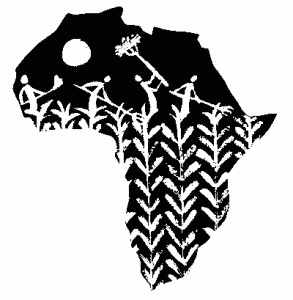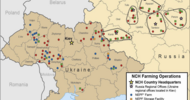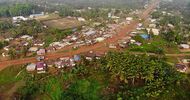Mwesiga Baregu
In the last two or so weeks two, highly disturbing trends, have been reported concerning Africa’s trials and tribulations. One is a long-term trend traced over the last forty years.
The other is emerging but will most likely converge with the first one to seal the fate of the continent.
Unfortunately both trends have not received the attention, urgency and publicity they deserve particularly in Africa. I am sure these trends will not receive such attention at the on-going World Economic Forum: “Rethinking Africa’s Growth Strategy”.
The long-term trend is presented in a recent report entitled; “Illicit Financial Flows from Africa: Hidden Resource for Development”, which has been released by Washington based Global Financial Integrity. The report is a must read. It is based on a study covering a period of 39 years from 1970 through 2008.
The report is also a follow-up of an earlier analysis of “Illicit Financial flows From Developing countries: 2002 – 2006”, which estimated that such flows amounted to nearly $1.06 Trillion every year.
Employing World Bank and IMF models and data the report comes to the general conclusion that over the 39 years, Africa has lost nearly $2.0 Trillion.
Specifically, the report notes that, contrary to popular belief, proceeds from bribery and theft by public officials (corruption) accounts for only 3 per cent; criminal activities such as drug and arms trafficking, racketeering, counterfeiting and money laundering – 30-35 per cent.
Tax evasion through mis-pricing is by far the highest leakage at 60-65 per cent. The total outflows exceed the Africa’s outstanding external debt and have turned the continent into a net creditor to the rest of the world.
The report finds that this massive haemorrhage of Africa is facilitated by a global shadow financial system and comes to the conclusion that: “The impact of this structure and the funds it shifts out of Africa is staggering.
It drains hard currency reserves, heightens inflation, reduces tax collection, cancels investment and undermines free trade.
It has its greatest impact on those at the bottom of income scales in their countries, removing resources that could otherwise be used for poverty alleviation and economic growth.”
The report recommends that in order to address this devastating problem requires concerted efforts by the African and western countries to enhance economic growth in African countries and stabilising and expanding the global economy.
The question is whether the requisite political will and capacity will be forthcoming from both sides! Remember how Tanzania has consistently failed to cooperate with the Serious Crimes Office (SFO) in the radar fraud investigation?
The new trend, which has been widely reported lately, has become known as the “Great African Land Grab”.
It is graphically described by Joan Baxter in Monde Diplomatique in the following terms: “A new scramble for Africa is on, and those wanting to take control are foreign banks,
investment funds, corporations, countries and billionaires who want to set up gargantuan industrial farms to produce crops for food and agro-fuel – for export, and for profit. Foreign direct investment in agriculture is the boardroom euphemism for the new land grab, and those promoting the grab spin it as a win-win situation.”
To facilitate this process Baxter reports that African politicians and local traditional leaders are signing away their people’s rights to land to outside nations and corporations. Reminiscent of the 19th Century scramble for Africa she goes further: “These figures,
who are supposed to be custodians of the land, can often be persuaded to sign off on a deal in exchange for a small gift or a low-paying job as a labourer on the investors’ plantation”. No wonder, some have aptly described it as the “New Scramble for Africa” – complete with the old patterns of behavior.
Land grabs involving millions of hectares of land have been reported in Sierra Leone (UK facilitated by Blair); DRC (China – 2.8mi. and S. Africa- 10mi.); Southern Sudan (USA – 1.0mi.); Ethiopia (India and Saudi Arabia); Tanzania (UK).
Ghana, Mali, Madagascar and Mozambique have also featured in facilitating the land grab. Among the promoters of this land grab are the World Bank, IFAD as well as FAO, though the latter initially hesitated.
The growing rate of land grabs in Africa is a reflection of the African government’s failure to transform agriculture.
As a result the small scale African farmer is no longer the focus of agricultural policy attention. This does not bode well for Africa’s food security, leave alone, state and human security.
The long-term danger I foresee, in the worst case scenario, is that the debt spiral will eventually converge with the land grabs.
This will then lead to land-for-debt swaps in a move which is tantamount to foreclosure – leasehold title deeds then will be converted to freehold deeds.
At that stage Africans will not only be landless but, in effect, country-less. Re-colonization par excellence will have arrived!
Prof Baregu lectures at the St Augustine Univesity of Tanzania’s School of Graduate Studies. [email protected]













